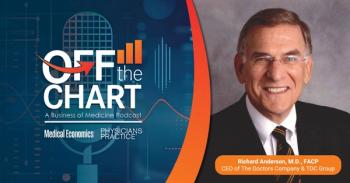
The health disparities of systemic racism
Systemic racism is also a public health issue.
Most, if not the whole world, have already experienced the horrific video capturing the death of George Floyd, the news of Rayshard Brooks, Ahmaud Arbery, Breonna Taylor, and countless others. Add to this the number of riots, peaceful protests gone bad, questionable leadership from the federal government, and police brutality. Oh yes, this is all taking place in the context of a COVID-19 pandemic and now a recession.
Heavy energy, huh? Not sure what to think or feel, right?
I am right there with you. The past few weeks have been very tough and hard on me. A lot of feelings that are hard to express and articulate into words. First of all, the names above are unfortunately another line of good-hearted people of color who have lost their lives to systemic racism. This is nothing new, just another event of systemic oppression dating back 400 years in our country's history.
However, what this does uncover is a larger issue that is overlooked: how systemic racism is a public health issue. In the context of the coronavirus pandemic and using data analytics, highly dense cities in our nation such as New York City, Washington D.C., and Chicago, the coronavirus affects blacks and browns disproportionately more than their white counterparts, according to
Chronic conditions such as heart disease, COPD, diabetes, and obesity predisposes those affected at a
Furthermore, considering poorer living conditions and access to health care, one starts to form a picture of how racially segregated some of our cities are based on
It is actually more eye-opening when you look at it from a food access perspective. In 2013, Policy Link and The Food Trust released an updated
"Accessing healthy food is still a challenge for many families, particularly those living in low-income neighborhoods, communities of color, and rural areas."
"Living closer to healthy food retail is among the factors associated with better eating habits and decreased risk for obesity and diet-related diseases."
"Healthy food retail stimulates economic activity."
Using the
Some notable organizations are channeling different methods to further the conversation between civil rights and land and food.
“As doctors and as human beings, we need to remove the stench of racism, end the damage it has caused, and restore dignity to make the very best of health available to everyone.” - Dr. Neal Barnard, President of Physicians Committee for Responsible Medicine.
Despite the probability of increased transmission of the coronavirus, doctors believe that
An open letter that was signed by 1,200 physicians stating that protesting should not shut down due to fears of viral transmission but to encourage gatherings while exercising Covid-19-related safety precautions. Similarly, 7,000 medical trainees have signed a letter calling for more police reform and accountability.
This current coronavirus pandemic is just another layer into the much larger disease that is systemic racism, thus illustrating where health and race have intersected for a very long time.
So, what do we do next? Less talk and more action, yeah? Let us talk to our policymakers, advocates, researchers, and philanthropic organizations. Only through TOGETHERNESS can we make sustainable change, no matter what color we are.
Take action here:
- What can I do next? The organization
Color of Change andGlobal Citizen have REAL solutions. - How can I learn more? The organization
Race Forward helps us to learn more about this deeply-rooted problem. Looking for books, documentaries, Ted talks, etc., on racism ?- The
National Black Food and Justice Alliance believes in food sovereignty, land, and justice.
About the Author
Newsletter
Optimize your practice with the Physicians Practice newsletter, offering management pearls, leadership tips, and business strategies tailored for practice administrators and physicians of any specialty.






